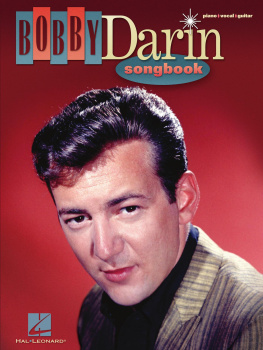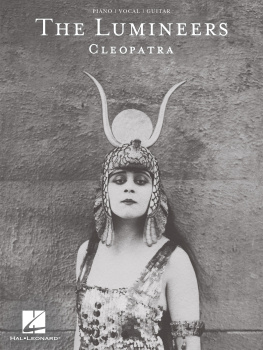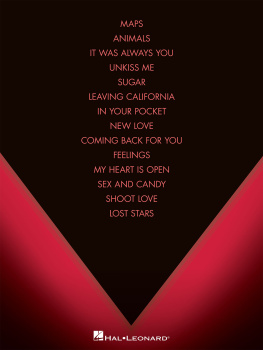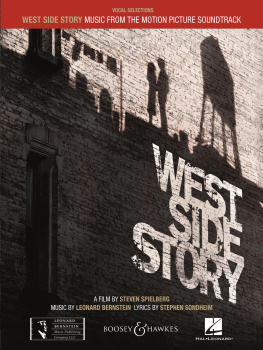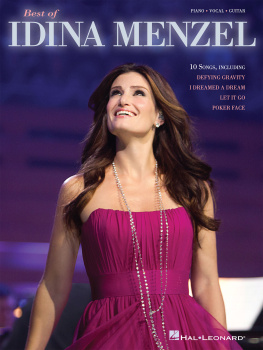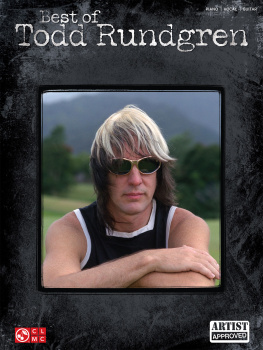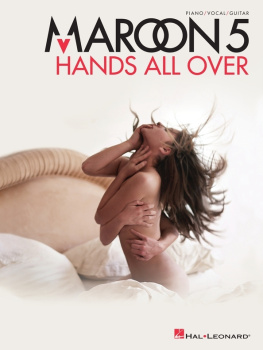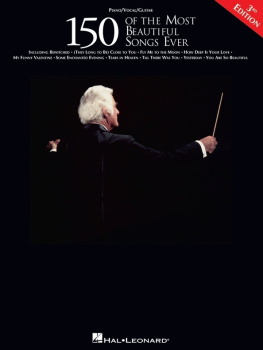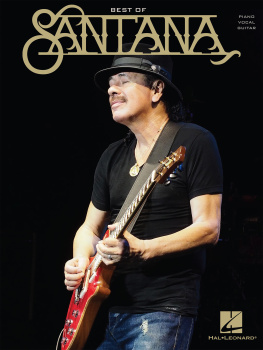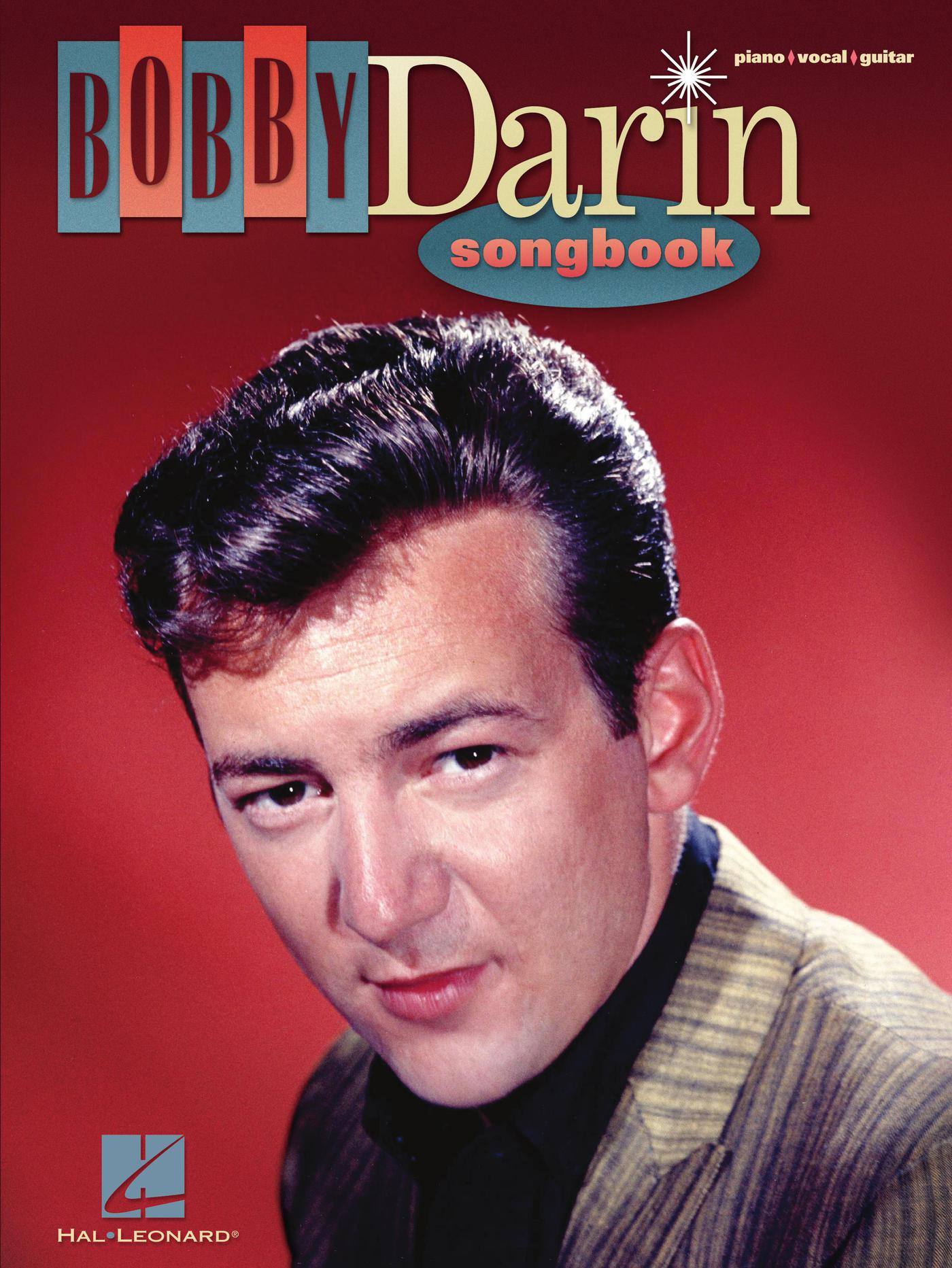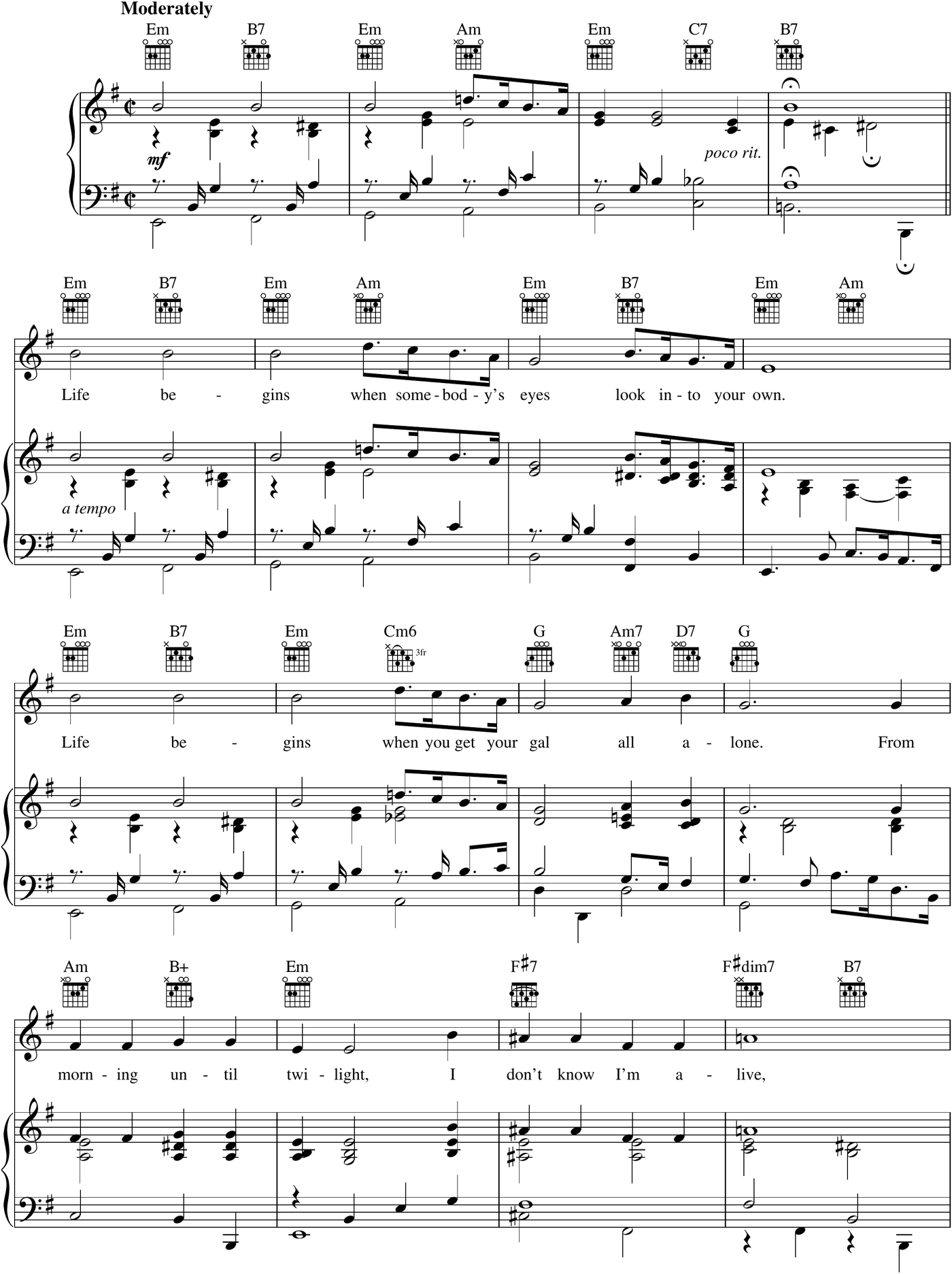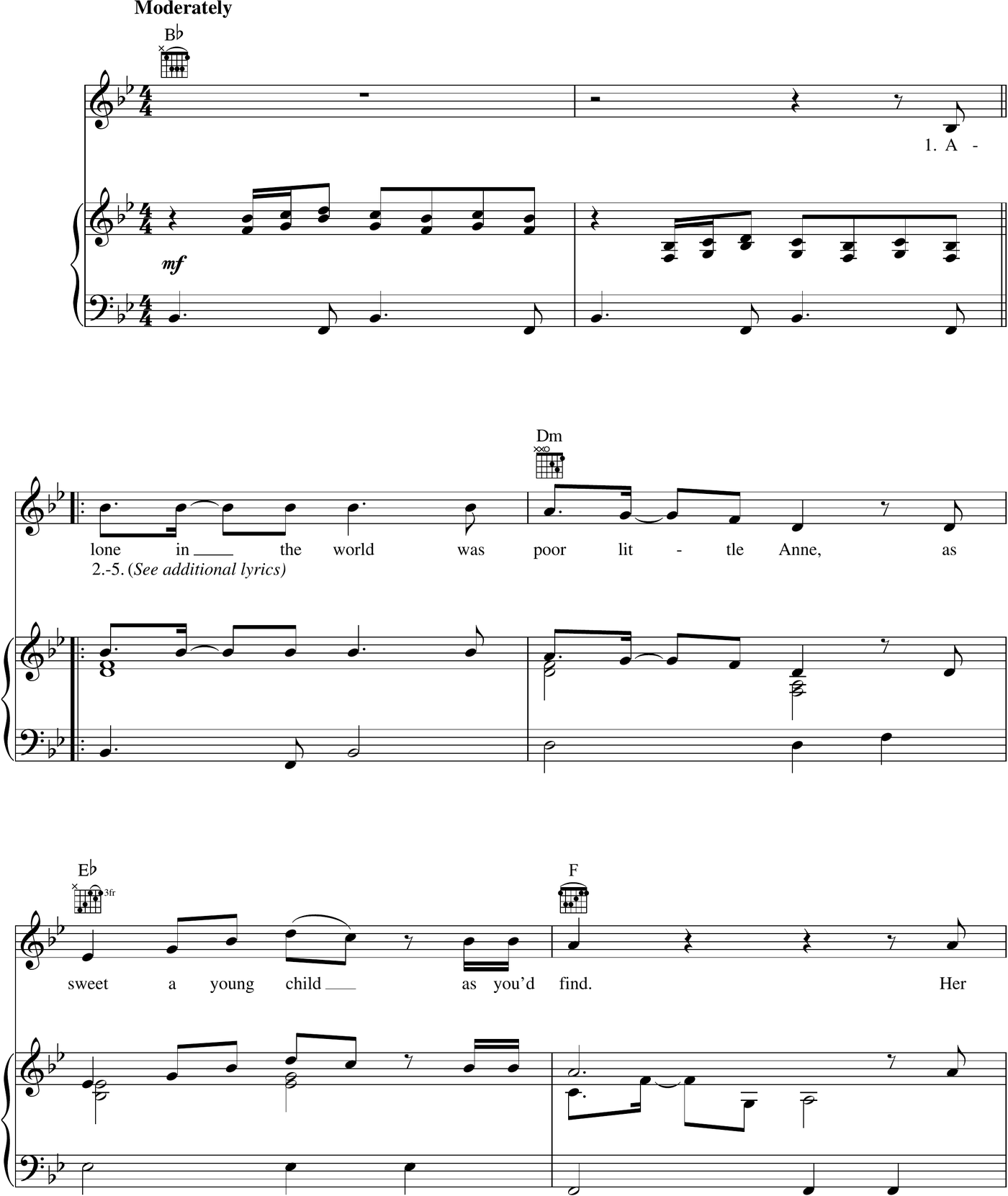Unauthorized copying, arranging, adapting, recording, Internet posting, public performance,
or other distribution of music in this publication is an infringement of copyright.
Infringers are liable under the law.
7777 W. Bluemound Rd.
Hal Leonard Australia Pty. Ltd.
Biography
Darin! A member of that elite group of entertainers-Sinatra!... Ella!... Sammy!... Elvis!-who were recognizable by a single name and whose talent was so unique and innovating that they populate a separate category unto themselves.
Bobby Darin was born Walden Robert Cassotto on May 14, 1936 in the Bronx, New York City. Saddled with a delicate heart from birth, he contracted rheumatic fever at an early age and was not expected to live past his teens. But as he did his entire life, Darin defied the odds and through his relentless drive and self-taught show-biz savvy went on to become first, a teen idol, then a jazzinfluenced pop singer, a movie and television star, and, ultimately, a live performer nonpareil.
Originally signed to Decca Records and dropped, he was about to be dropped by his second label, Atco, when he wrote and recorded a novelty song called "Splish Splash," which shot up to #3 on the charts in 1958. He followed that up with "Early in the Morning," "Queen of the Hop," "Plain Jane," and the enchanting "Dream Lover," all reaching the Top 40 within a 12-month period. Then in 1959, in a career-defining gamble, he abandoned his teen-idol status and recorded an album of big band standards that contained two of his most famous songs, "Mack the Knife" and "Beyond the Sea." "Mack the Knife" went on to hold the #1 position for nine weeks and stayed on the charts for six months. It also won Darin two GRAMMY Awards-one for Record of the Year and the first GRAMMY awarded for Best New Artist.
From there it was an easy jump to the big screen. He made his motion picture debut in Come September , where he met his first wife, Sandra Dee, the mother of his only child, Dodd Mitchell Darin. Dramatic turns followed with Hell Is for Heroes, Pressure Point , and Captain Newman, M.D. , for which he received an Academy Award nomination as Best Supporting Actor. During this period, he was also a ubiquitous presence on television and became the youngest performer to headline his own network special, Bobby Darin and Friends , on NBC in 1960.
He also continued to score Top 40 hits with "Clementine," "Bill Bailey, Won't You Please Come Home," "Artificial Flowers," "Lazy River," "Irresistible You," "Multiplication," "Things," and "You Must Have Been a Beautiful Baby." The composer of the latter, the renowned Johnny Mercer, once stated that he loved all the wonderful singers who performed his songs-which took in a lot of ground-but that, in his estimation, "Bobby was the best."
But perhaps Darin's most indelible talent was as a live performer. To witness a Bobby Darin show was to remain electrified well beyond the final curtain. He sang, played a half-dozen instruments, did comedy and impressions, and punctuated his performances with a unique set of moves that became his trademark. His only serious "in person" rival was the multi-talented Sammy Davis Jr., who could exhaust an audience with his explosive stage persona. Yet, when asked if there was anyone he would not attempt to follow, Davis said without hesitation, "Bobby Darin."
As an interpreter of songs, he "studied" under the masters. He idolized Al Jolson, Bing Crosby, Ray Charles, and Frank Sinatra. Accused of possessing an inordinate amount of cockiness, Darin was always good press. He was terribly misquoted after he won his two GRAMMYs when a reporter wrote that the 23-year-old Darin said that he wanted to be bigger than Frank Sinatra. The press jumped on this and attempted to create a feud between the two. Some years later, Sinatra was asked about his feud with Darin. Ol' Blue Eyes said, "What feud? I'm his biggest fan. He's the heir apparent."
Highly committed to the civil rights movement, Bobby shifted musical gears once again as the 1960s wound down. He began exploring the intricacies of folk and protest music and scored a major hit in 1968 with a Tim Hardin composition, "If I Were a Carpenter." Returning the favor, Darin wrote Hardin's only charting record, "Simple Song of Freedom," a piece that has emerged as one of the finest protest statements of the era and one that Bobby himself performed at every show for the rest of his life.
In the early 1970s, while in production on his NBC variety series, The Bobby Darin Show , Darin's fragile health began to fail drastically. During a performance, he would drain his physical resources so completely that he would have to sneak off-stage to breathe from an ever-present oxygen tank. Yet audiences never knew the severity of his condition and were never the recipients of anything less than a bravura, no-holds-barred performance. Finally, on December 20, 1973, at the age of 37, Bobby Darin died while undergoing an operation in an attempt to repair his delicate heart.
Bobby Darin was a consummate performer. He is a legend whose accomplishments in every facet of the entertainment industry included those as a singer, actor, songwriter, nightclub performer, record producer, talent scout, music publisher, television star, and film scorer. And all this was accomplished in a ridiculously short 15-year career. He was elected to the Rock 'n' Roll Hall of Fame in 1999. He is as popular today as he was during his lifetime. A major motion picture based on his life, Beyond the Sea , directed by and starring Kevin Spacey, was released in 2004 and his musical legacy continues to bring to light his boundless talent.
We shall never see his like again.
-James Ritz
ABOUT A QUARTER TO NINE
Words by AL DUBIN
Music by HARRY WARREN
1935 WARNER BROS. INC. (Renewed)
All Rights Reserved Used by Permission
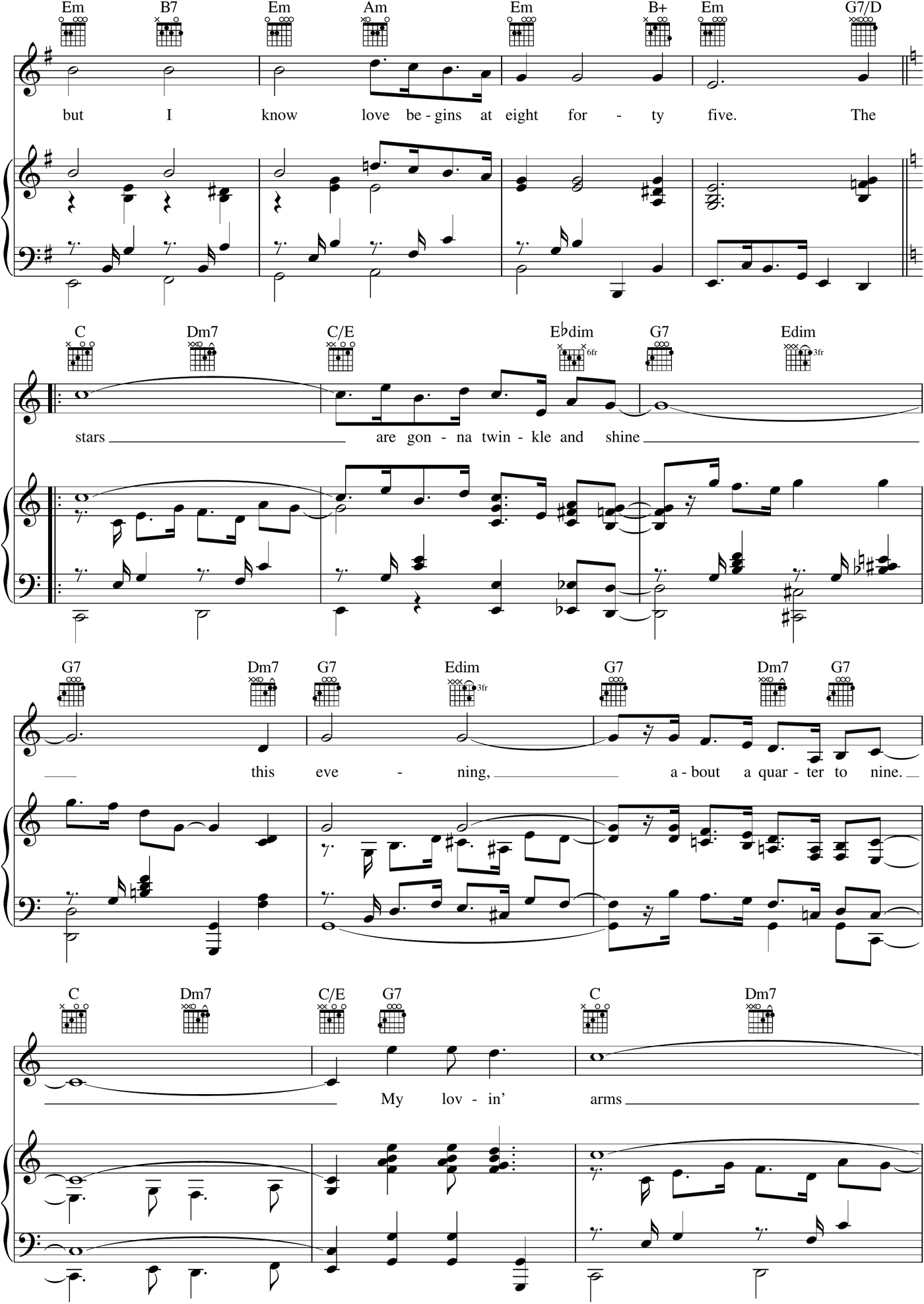
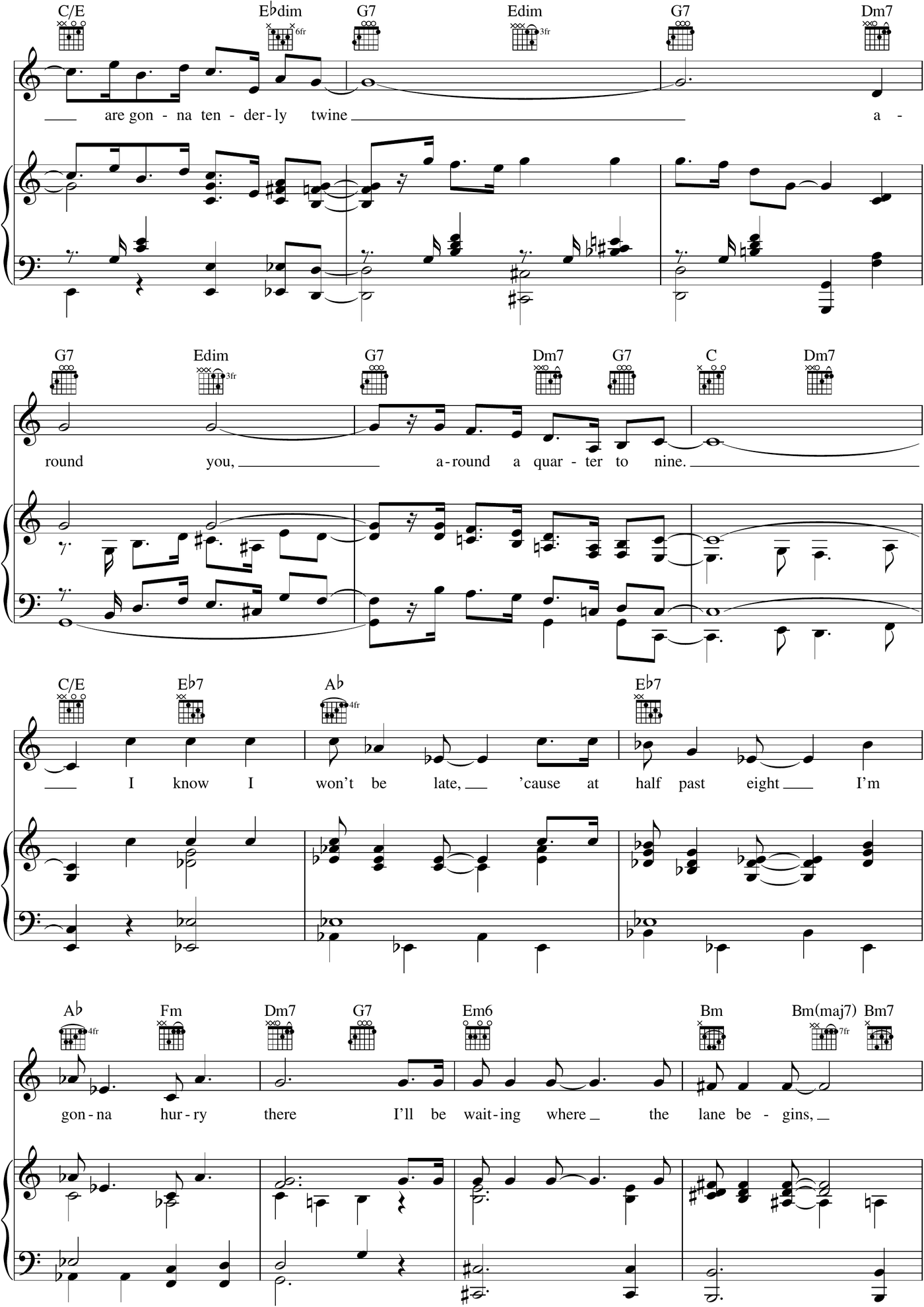
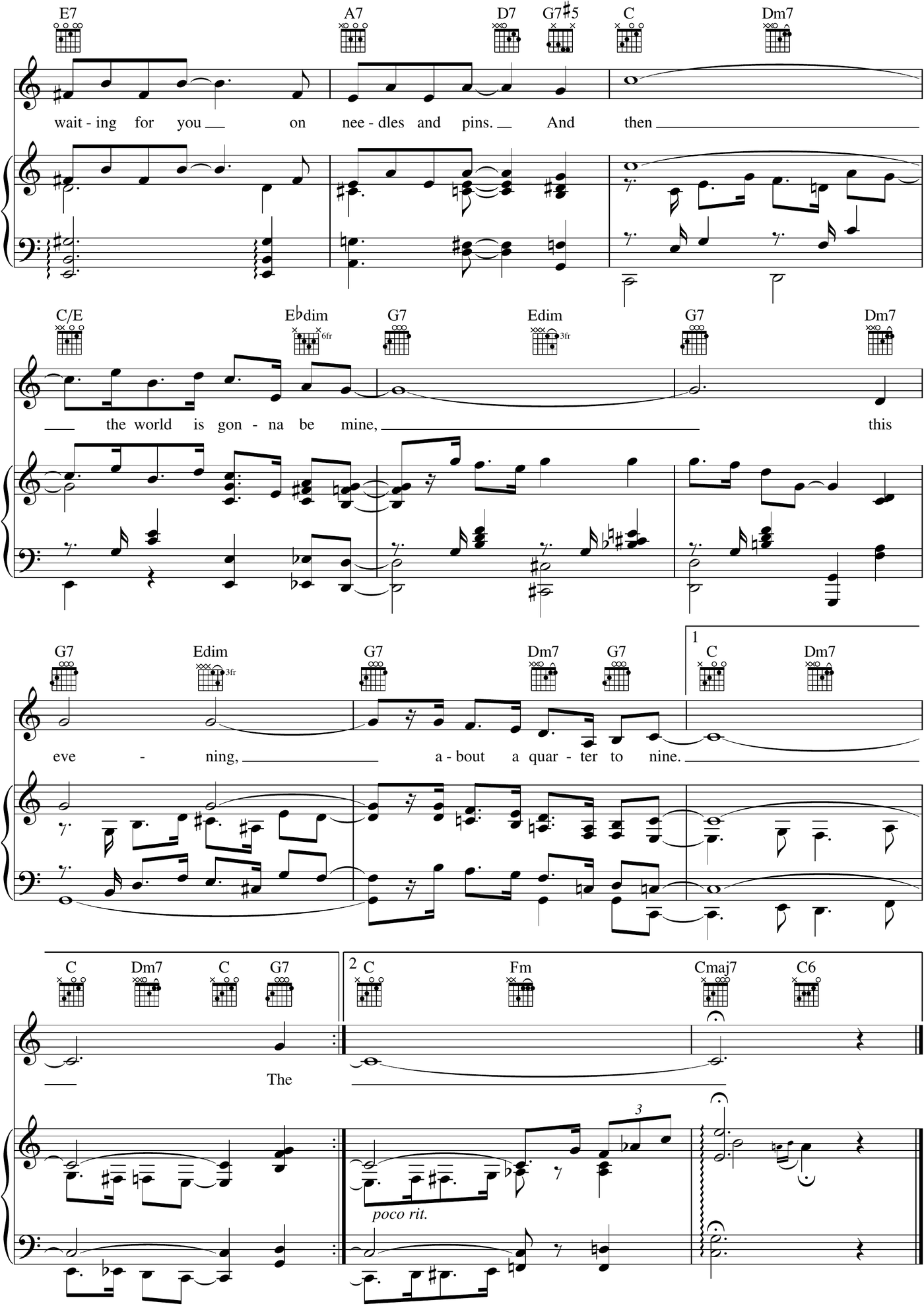
ARTIFICIAL FLOWERS
Lyrics by SHELDON HARNICK
Music by JERRY BOCK
1960 (Renewed 1988) MAYERLING PRODUCTIONS, LTD. (Administered by R&H MUSIC) and JERRY BOCK ENTERPRISES
All Rights outside the United States Controlled by ALLEY MUSIC CORP. and TRIO MUSIC COMPANY

